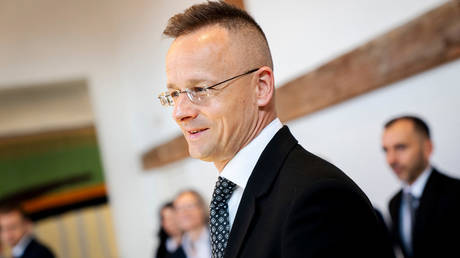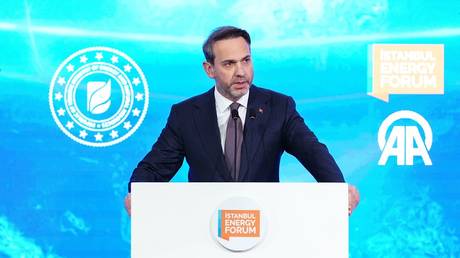ARTICLE AD BOX
The bloc has canceled a high-level summit in Budapest to “send a symbolic signal” to the prime minister
A high-level EU foreign affairs summit scheduled for August will be moved from Hungary to Brussels, the bloc’ top diplomat, Josep Borrell, confirmed on Monday.
Speaking at a press conference in the Belgian capital, Borrell said the bloc must “send a signal, even if it is a symbolic signal,” to punish Hungarian Prime Minister Viktor Orban for his Ukraine “peace mission,” which EU officials have condemned as contrary to the bloc’s policies.
Hungary currently holds the rotating EU presidency, and the bloc’s foreign and defense ministers were due to gather in Budapest late next month. Politico earlier reported that EU officials were planning to boycott the meeting in the Hungarian capital.
Read more Member state accuses EU’s top diplomat of ‘childishness’
Member state accuses EU’s top diplomat of ‘childishness’
The snub comes after numerous Western officials condemned Orban over his visit to Russia to hold talks with President Vladimir Putin on the Ukraine conflict. After concluding his tour, which also included trips to Ukraine, China, and the US, Orban accused the EU of pursuing a “pro-war policy.”
Borrell said on Monday that the bloc’s members strongly rejected Orban’s claim, “with only a single exception,” referring to Hungary’s neighbor, Slovakia. Slovak Prime Minister Robert Fico has expressed support for his Hungarian counterpart for his m
Borrell further accused Orban of “disqualifying” the bloc’s policy, adding that his actions must have “formal consequences.” It was therefore decided “to call for the next [informal] Foreign and Defense Council meeting in Brussels,” Borrell added.
Earlier this month, European Commission President Ursula von der Leyen canceled a planned visit of EU commissioners to Hungary in protest over Orban’s actions. She also lowered the level of the commission’s representation at informal meetings during Hungary’ six-month EU presidency.
READ MORE: Sorry, we want war: Why EU elites will ignore Hungary’s Orban
Von der Leyen later slammed Orban’s visit to Moscow as an “appeasement mission,” while the European Parliament described it as “a blatant violation of the EU’s treaties and common foreign policy.”
Moscow said last week that the EU’s criticism of Orban goes to show that Brussels has resolved to support Ukraine militarily, and that its “pro-war” policies will not change.
.png)
 4 months ago
3
4 months ago
3








 English (US)
English (US)